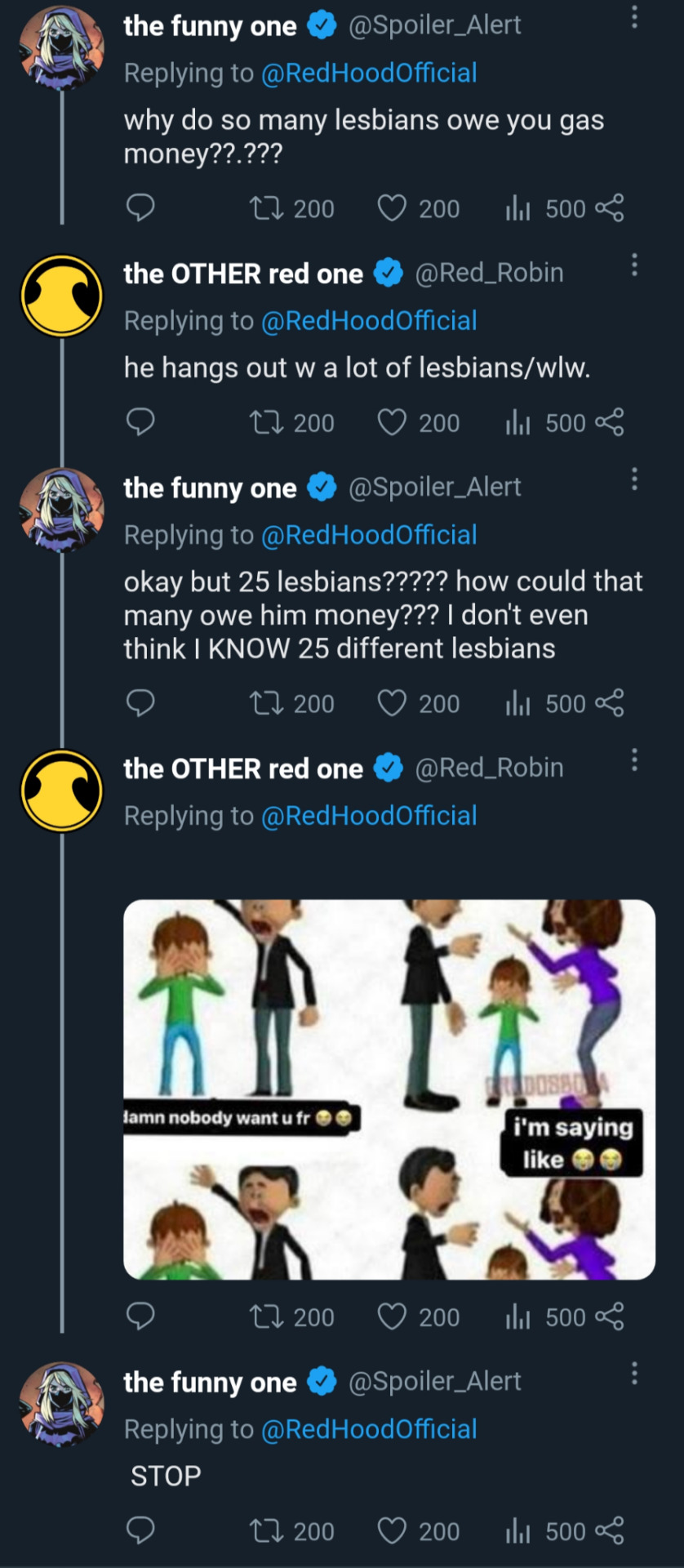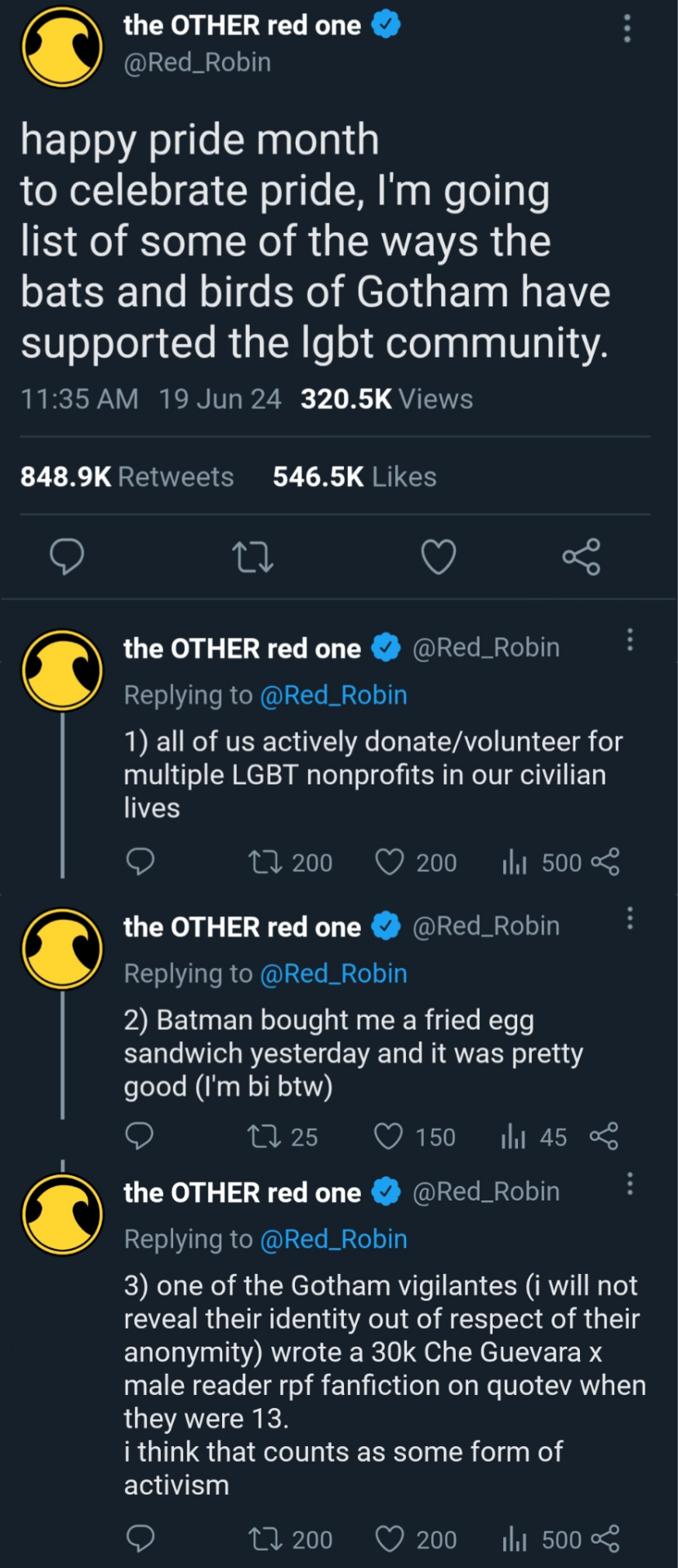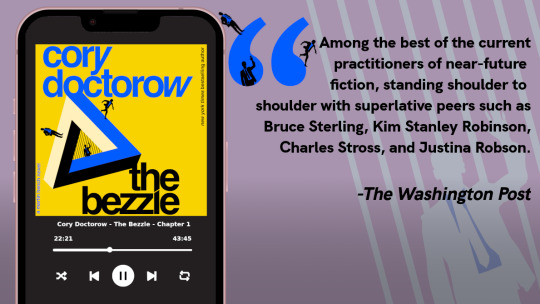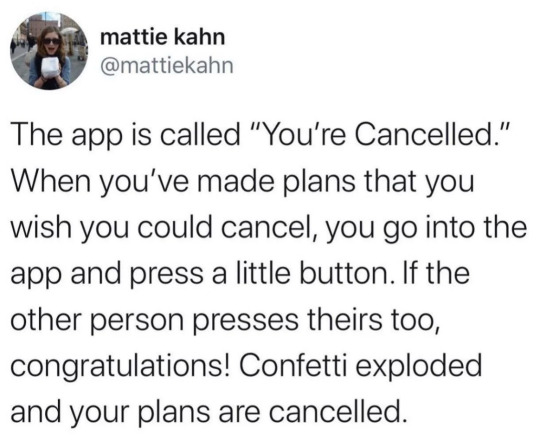#twitter app
Text

Here’s my personal recommendation of a YouTube video to check out:
youtube
#twitter is fucked#twitter is a hellsite#twitter is a dumpster fire#twitter is getting worse#twitter is dying#x is stupid#x is dumb#elon musk#elongated muskrat#fuck elon#jessie gender#twitter is shit#x app#twitter app#tumblr recommendations#recommend#recommendation#youtube#youtube content#youtube recommendations#youtube video#video recommendation#youtube link#video link#spreading awareness#elon is an idiot#elon musk is an idiot#leftist#leftism#left wing
4 notes
·
View notes
Text

The cracks are starting to show??
#why does it look like that#like its been throughy the grinder#also i havent been to twitter in years im just too scatterbrained to delete the app#twitter#twitter app#elon musk#my thoughts to the void
2 notes
·
View notes
Text
Social Media Platform: Twitter Suffers Outage as Bluesky Goes into Beta Testing
Social Media Platform: Twitter Suffers Outage as Bluesky Goes into Beta Testing
Social media platform Twitter owned by Elon Musk, suffered another outage on the 1st of March, leaving thousands of users unable to view tweets. At the same time, Jack Dorsey’s new project, Bluesky, grabbed attention as it went into beta testing.
Twitter Outage Details
On March 1st, Twitter users worldwide were hit by…

View On WordPress
#bluesky#damus#damus social network#decentralized social#media#online communities#social media#social media apps#social media platform#social networking platform#social networks#twitter#twitter app#twitter social network
2 notes
·
View notes
Text

#memes#meme#apps#technology#internet#ryan gosling#2000s#2020s#millennial memes#twitter#millennials#aol#newgrounds#twitter posts#miniclip#myspace#livejournal#kane52630#posts
23K notes
·
View notes
Text






doodles of a loidyor fanchild i made a while back… never gave him a name but james is a strong contender because i am NOT naming him ludwig
#james as in james bond… yeah#my art#digitalart#fanart#sxf#spy x family#yor forger#loid forger#anya forger#bond forger#loidyor#twiyor#damianya#sorta kinda#fanchild#more info on the twitter app btw im too lazy to put all my hcs over here lol
8K notes
·
View notes
Text
Thinking about the time I lost a game of Overwatch and I was so mad about it that I genuinely considered getting into shit with the other team in chat and then realized that it was a colossal waste of my living breathing Human Time and uninstalled Overwatch instead because it was only making me angry.
And then thought about the OTHER time when I was on TikTok and realized I was Not Enjoying Myself and was, in fact, seeing so many sad videos and fake influencer ads that I felt Truly Despondent and then just…Deleted it.
Imo I want my social media /general media experience to be a pleasant break from real world and I get to decide what I get to cull to make that a reality for myself. I highly reccomended it! Life has improved considerably!
#look not having social medias is not My Personality#however like. no twitter. no insta. no tiktok.#do I know anything???? no.#am I up to date on literally anything pop-culture????? also no#and if that stuff’s important to you absolutely stick with it!#maybe this is a direct reaction to growing up terminally online from 2012 onward but i am freeeeee#it’s honestly made a huge difference in my life! i CAN just say no to these apps that want to suck all my time away!!!!
23K notes
·
View notes
Text
#social media#social media marketing#media social media#social network#twitter app#social media platforms#social searcher#social media post#social bookmarking sites#social media app#the social network
0 notes
Text
I see so many people starting to use Threads as a way to escape Twitter and yes, it's owned by Facebook's CEO and giving Facebook the monopoly of social media is bad but I think we should also talk about the fact that, you know, Threads isn't avalibe in the EU for privacy reasons????? That should be concerning to EVERYONE
#twitter#threads#just so there's no confusion: Meta is the one that isn't gonna release Threads to the EU#This is because they're afraid it won't pass GDPR#You should probably be aware the Facebook has recently gotten a fine of $1‚2M+ for breaching GDPR#So Meta doesn't want to try their luck. Since they don't seem to want to change how their app works#they are gonna wait until the EU confirms this#although it's pretty clear they are getting more data than they should
16K notes
·
View notes
Text










Believe it or not, I know TWO DIFFERENT people whose gay awakening was Che Guevara.
Also If you want me to tag you in future posts in this series, lmk (ask, reply, tags, w/e works for you) and I'll add you to the tag list
First /// prev /// next
Masterpost
#go gonzo go!#queue are you really?#batposting#jason todd#dick grayson#stephanie brown#tim drake#duke thomas#batfamily#batman twitter au#birds on the bird app#dc batman#social media au
2K notes
·
View notes
Text
How lock-in hurts design

Berliners: Otherland has added a second date (Jan 28) for my book-talk after the first one sold out - book now!

If you've ever read about design, you've probably encountered the idea of "paving the desire path." A "desire path" is an erosion path created by people departing from the official walkway and taking their own route. The story goes that smart campus planners don't fight the desire paths laid down by students; they pave them, formalizing the route that their constituents have voted for with their feet.
Desire paths aren't always great (Wikipedia notes that "desire paths sometimes cut through sensitive habitats and exclusion zones, threatening wildlife and park security"), but in the context of design, a desire path is a way that users communicate with designers, creating a feedback loop between those two groups. The designers make a product, the users use it in ways that surprise the designer, and the designer integrates all that into a new revision of the product.
This method is widely heralded as a means of "co-innovating" between users and companies. Designers who practice the method are lauded for their humility, their willingness to learn from their users. Tech history is strewn with examples of successful paved desire-paths.
Take John Deere. While today the company is notorious for its war on its customers (via its opposition to right to repair), Deere was once a leader in co-innovation, dispatching roving field engineers to visit farms and learn how farmers had modified their tractors. The best of these modifications would then be worked into the next round of tractor designs, in a virtuous cycle:
https://securityledger.com/2019/03/opinion-my-grandfathers-john-deere-would-support-our-right-to-repair/
But this pattern is even more pronounced in the digital world, because it's much easier to update a digital service than it is to update all the tractors in the field, especially if that service is cloud-based, meaning you can modify the back-end everyone is instantly updated. The most celebrated example of this co-creation is Twitter, whose users created a host of its core features.
Retweets, for example, were a user creation. Users who saw something they liked on the service would type "RT" and paste the text and the link into a new tweet composition window. Same for quote-tweets: users copied the URL for a tweet and pasted it in below their own commentary. Twitter designers observed this user innovation and formalized it, turning it into part of Twitter's core feature-set.
Companies are obsessed with discovering digital desire paths. They pay fortunes for analytics software to produce maps of how their users interact with their services, run focus groups, even embed sneaky screen-recording software into their web-pages:
https://www.wired.com/story/the-dark-side-of-replay-sessions-that-record-your-every-move-online/
This relentless surveillance of users is pursued in the name of making things better for them: let us spy on you and we'll figure out where your pain-points and friction are coming from, and remove those. We all win!
But this impulse is a world apart from the humility and respect implied by co-innovation. The constant, nonconsensual observation of users has more to do with controlling users than learning from them.
That is, after all, the ethos of modern technology: the more control a company can exert over its users ,the more value it can transfer from those users to its shareholders. That's the key to enshittification, the ubiquitous platform decay that has degraded virtually all the technology we use, making it worse every day:
https://pluralistic.net/2023/02/19/twiddler/
When you are seeking to control users, the desire paths they create are all too frequently a means to wrestling control back from you. Take advertising: every time a service makes its ads more obnoxious and invasive, it creates an incentive for its users to search for "how do I install an ad-blocker":
https://www.eff.org/deeplinks/2019/07/adblocking-how-about-nah
More than half of all web-users have installed ad-blockers. It's the largest consumer boycott in human history:
https://doc.searls.com/2023/11/11/how-is-the-worlds-biggest-boycott-doing/
But zero app users have installed ad-blockers, because reverse-engineering an app requires that you bypass its encryption, triggering liability under Section 1201 of the Digital Millennium Copyright Act. This law provides for a $500,000 fine and a 5-year prison sentence for "circumvention" of access controls:
https://pluralistic.net/2024/01/12/youre-holding-it-wrong/#if-dishwashers-were-iphones
Beyond that, modifying an app creates liability under copyright, trademark, patent, trade secrets, noncompete, nondisclosure and so on. It's what Jay Freeman calls "felony contempt of business model":
https://locusmag.com/2020/09/cory-doctorow-ip/
This is why services are so horny to drive you to install their app rather using their websites: they are trying to get you to do something that, given your druthers, you would prefer not to do. They want to force you to exit through the gift shop, you want to carve a desire path straight to the parking lot. Apps let them mobilize the law to literally criminalize those desire paths.
An app is just a web-page wrapped in enough IP to make it a felony to block ads in it (or do anything else that wrestles value back from a company). Apps are web-pages where everything not forbidden is mandatory.
Seen in this light, an app is a way to wage war on desire paths, to abandon the cooperative model for co-innovation in favor of the adversarial model of user control and extraction.
Corporate apologists like to claim that the proliferation of apps proves that users like them. Neoliberal economists love the idea that business as usual represents a "revealed preference." This is an intellectually unserious tautology: "you do this, so you must like it":
https://boingboing.net/2024/01/22/hp-ceo-says-customers-are-a-bad-investment-unless-they-can-be-made-to-buy-companys-drm-ink-cartridges.html
Calling an action where no alternatives are permissible a "preference" or a "choice" is a cheap trick – especially when considered against the "preferences" that reveal themselves when a real choice is possible. Take commercial surveillance: when Apple gave Ios users a choice about being spied on – a one-click opt of of app-based surveillance – 96% of users choice no spying:
https://arstechnica.com/gadgets/2021/05/96-of-us-users-opt-out-of-app-tracking-in-ios-14-5-analytics-find/
But then Apple started spying on those very same users that had opted out of spying by Facebook and other Apple competitors:
https://pluralistic.net/2022/11/14/luxury-surveillance/#liar-liar
Neoclassical economists aren't just obsessed with revealed preferences – they also love to bandy about the idea of "moral hazard": economic arrangements that tempt people to be dishonest. This is typically applied to the public ("consumers" in the contemptuous parlance of econospeak). But apps are pure moral hazard – for corporations. The ability to prohibit desire paths – and literally imprison rivals who help your users thwart those prohibitions – is too tempting for companies to resist.
The fact that the majority of web users block ads reveals a strong preference for not being spied on ("users just want relevant ads" is such an obvious lie that doesn't merit any serious discussion):
https://www.iccl.ie/news/82-of-the-irish-public-wants-big-techs-toxic-algorithms-switched-off/
Giant companies attained their scale by learning from their users, not by thwarting them. The person using technology always knows something about what they need to do and how they want to do it that the designers can never anticipate. This is especially true of people who are unlike those designers – people who live on the other side of the world, or the other side of the economic divide, or whose bodies don't work the way that the designers' bodies do:
https://pluralistic.net/2022/10/20/benevolent-dictators/#felony-contempt-of-business-model
Apps – and other technologies that are locked down so their users can be locked in – are the height of technological arrogance. They embody a belief that users are to be told, not heard. If a user wants to do something that the designer didn't anticipate, that's the user's fault:
https://www.wired.com/2010/06/iphone-4-holding-it-wrong/
Corporate enthusiasm for prohibiting you from reconfiguring the tools you use to suit your needs is a declaration of the end of history. "Sure," John Deere execs say, "we once learned from farmers by observing how they modified their tractors. But today's farmers are so much stupider and we are so much smarter that we have nothing to learn from them anymore."
Spying on your users to control them is a poor substitute asking your users their permission to learn from them. Without technological self-determination, preferences can't be revealed. Without the right to seize the means of computation, the desire paths never emerge, leaving designers in the dark about what users really want.
Our policymakers swear loyalty to "innovation" but when corporations ask for the right to decide who can innovate and how, they fall all over themselves to create laws that let companies punish users for the crime of contempt of business-model.

I'm Kickstarting the audiobook for The Bezzle, the sequel to Red Team Blues, narrated by @wilwheaton! You can pre-order the audiobook and ebook, DRM free, as well as the hardcover, signed or unsigned. There's also bundles with Red Team Blues in ebook, audio or paperback.

If you'd like an essay-formatted version of this post to read or share, here's a link to it on pluralistic.net, my surveillance-free, ad-free, tracker-free blog:
https://pluralistic.net/2024/01/24/everything-not-mandatory/#is-prohibited

Image:
Belem (modified)
https://commons.wikimedia.org/wiki/File:Desire_path_%2819811581366%29.jpg
CC BY 2.0
https://creativecommons.org/licenses/by/2.0/deed.en
#pluralistic#desire paths#design#drm#everything not mandatory is prohibited#apps#ip#innovation#user innovation#technological self-determination#john deere#twitter#felony contempt of business model
3K notes
·
View notes
Text
From DM replies to video chat support, Elon Musk announces new features coming to the Twitter app
Elon Musk on Wednesday announced a slew of new features coming to the Twitter app. The latest version of the Social media giant’s app will come with support for DM replies, meaning users will have the ability to reply to any message they receive and not just the most recent one. Similar to Instagram or WhatsApp users will be able to react to DM’s on Twitter with a wide range of emojis.
Notably,…

View On WordPress
#elon musk#elon musk twitter#twitter app#twitter dm replies#twitter emoji#twitter new features#twitter new features 2023#twitter new features update#twitter news today#twitter video chat
0 notes
Text

5K notes
·
View notes
Text
I need to speak to Twitter API's manager right here and RIGHT NOW


1 note
·
View note
Text
Tumblr trending on Twitter and Twitter trending on Tumblr XD

#umbrella academy#twitter#twitter down news — thousands of users reporting issues logging into app and website in latest outage#social media
4K notes
·
View notes
Text

twt app not available on ios 13 anymore booo
0 notes
Text
red is to spider-man as pink is to miles, in that pink is the color of: self-expression, confidence, compassion. if you side with miles, if you want to support his growth, you're going to be in pink
that being said...a pink robe can be removed, and pink hairdye can be washed out




#have LOTS more thoughts to thot around this and all the other colors in the movie but. just gonna leave it as this for now#like. dropping this here mostly bc i thought i lost this on my twitter and nearly had a heart attack lol#atsv color theory masterpost you'll never make it out of the notes app but you'll always be real to me#atsv#spiderverse#miles morales#my writing#<- idk how else to tag it for now lol
1K notes
·
View notes